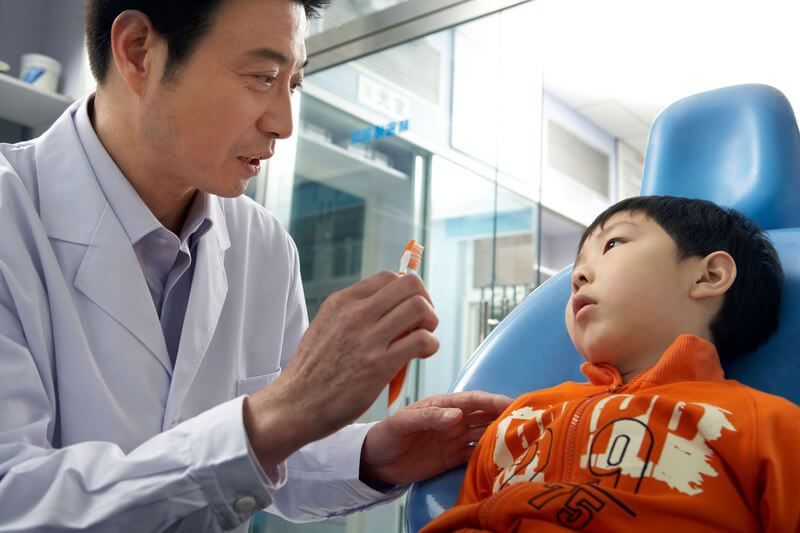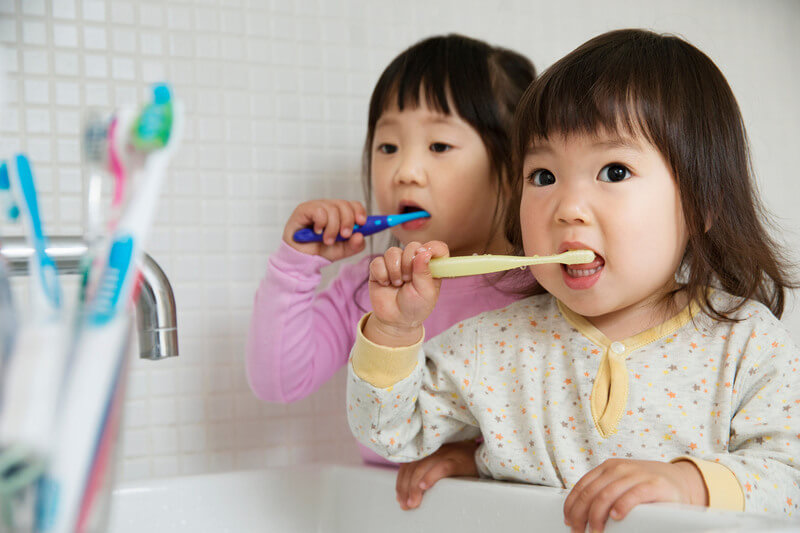
Last updated:
Getting kids to look after their teeth is about as fun as a root canal. They struggle. They get distracted. They’re kids.
Despite its challenges, we think we’re doing pretty well. A recent study by HBF on children’s dental health reveals two in three parents believe they’re doing a great job promoting good dental hygiene. Unfortunately, the reality
of kids' dental health is less than pearly white.
“At least half of all children start school with decayed teeth, the vast majority of which is preventable by regular and
thorough brushing and flossing,” explains Dr Rodney Jennings, Specialist Paediatric Dentist.
The problem is not all kids are regularly brushing and flossing. According to HBF’s study, about one in three kids only brush once
a day. Flossing is a bigger issue: more than a quarter of parents say their kids have never flossed.
A report by Australian Institute of Health and Welfare confirms the rotten state of kids’ dental health in Australia, finding
that in 2012-2014, 42% of children had experienced decay in their baby teeth, and 24% of children had experienced decay in their adult teeth1.
While the statistics on kids’ dental health do not make for comfortable reading, it’s important to remember that tooth decay
is entirely preventable.
Here’s how you can help your kids keep their teeth in tip-top shape:
1. Make it fun
Dentist Dr Justin Soon says introducing fun incentives motivates kids to look after their teeth.
“We encourage parents to create a ‘cleaning calendar’ where they have goals to brush their teeth regularly. Use stickers
to track progress and give praise, this will help to inspire an interest in their teeth,” says Dr Soon.
Getting kids to floss is harder. However, as Dentist Dr Naz Jennings explains, without flossing, a third of each
tooth isn’t being cleaned. That build-up of bacteria in spots a tooth brush can’t reach can lead to decay.
For little uncoordinated hands, flossing can be tricky. And this is a major barrier in getting them to do it.
Dr Jennings says the best way to get your kids flossing is making sure they have the right tool for the job. Disposable plastic
frames with floss pre-threaded are easier for little hands to handle.
Once you’ve got the right tools, it’s a simple matter of teaching your kids how to use them. This is where you can start
to get a little creative…
2. Floss (and brush) as a family
Studies show that kids are born copycats, often to a fault. This phenomenon is known by developmental psychologists as ‘overimitation2’.
They learn by imitating an adult’s exact process, to the point where if they see an adult doing (or not doing) a thing, they
will copy them move for move—the good and the bad stuff.
This copycat behaviour is important to remember when teaching kids about dental health. If parents have bad habits (not brushing
or flossing regularly), kids will often follow suit.
The best way to get your kids into good habits is to form them yourself.
“Kids often want to do what their parents do, so why not floss at the same time each day together,” says Dr Soon.
Brushing and flossing as a family gets kids using the right technique. It also helps form a positive, regular habit.

3. Use language that resonates with kids
Adults quickly reach for toothpaste and floss once they realise how painful and expensive bad teeth can be. But kids just
don’t have that fear of fillings.
Which is why the language you use is important when explaining dental health to kids.
“For kids, we often talk about the ‘germs left between the teeth’, and how the teeth stay ‘dirty’,” says Dr Jennings. “Finding
and ‘fighting the germs’ is usually a good motivator.”
And once they’ve found and fought the germs, showing kids the defeated villains (the plaque picked up by the floss) can provide
further encouragement.
4. Scale and clean at least once a year
As the old saying goes, ‘prevention is better than a cure’. Visiting the dentist at least once a year for a scale and clean
will help identify potential issues before they get out of hand.
“Eighty per cent of our younger members who had an annual scale
and clean had no fillings performed, so you can save in the long run by maintaining regular dental appointments,” says HBF's Jade Furness.
Dental cover with HBF
Understand the dental categories and find out what's covered to discover the best dental cover for your needs.
Sources:
1 AIHW - Australia's children (2020)
2 Science Daily - Copycat behaviour in children (2010)